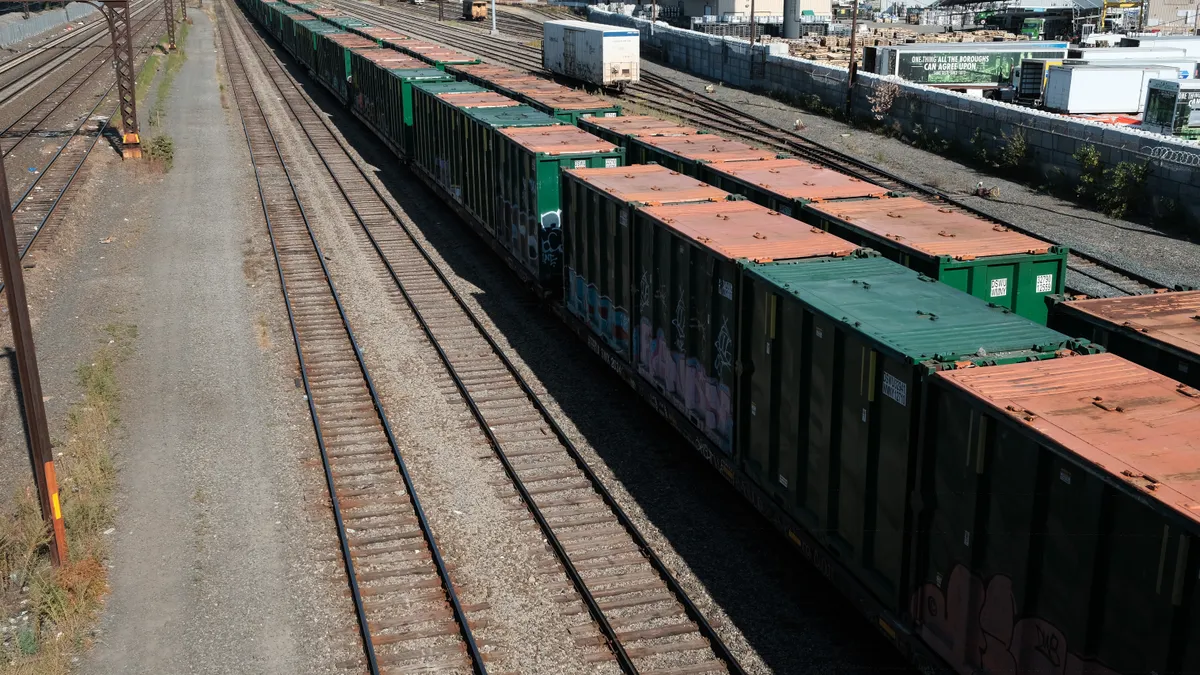Rail operator CSX CFO Sean Pelkey this week shrugged off the potential risk related to a looming strike in the auto industry, saying he was confident his company would be able to weather negative impacts.
Speaking at Deutsche Bank’s Transportation Conference Tuesday, Pelkey said he is betting that even if there is a strike it would likely not last long enough to sufficiently affect the need for transporting cars by rail, he said.
"The intel we have, our best guess, is even if there is a strike, hopefully, it will be short lived," Pelkey said. While it's not clear how events will play out, CSX does think a potential strike will be brief, "and there will still be vehicles that need to be moved, and when you think about the supply chain for inbound products, I don't think auto companies will cut that off day one."
Nearly 150,000 members of the United Auto Workers union are scheduled to vote next week on whether to authorize leaders to call strikes against the Detroit automakers, the Associated Press reported Tuesday. A Michigan consulting firm estimates that a work stoppage at GM, Ford and Stellantis would result in a more than $5 billion economic loss after 10 days, CNBC reported Thursday.
Overall, according to Pelkey, the auto sector has always been a strong source of revenues, and he does not expect that to change anytime soon. Major auto companies make up about half of Jacksonville, Florida- based CSX’s total exposure to the industry, but Pelkey added that there are a number of indirect markets for things such as plastics, metals and chemicals that are needed to make the cars themselves.
Pelkey also detailed other sectors of that economy that make up the CSX’s customer base that have been particularly strong lately including fertilizer and minerals, due to pickups in construction activity and roadwork, and auto-industry metals.
On the weaker side of things, he said the chemical sector has been sagging, especially domestic and industrial, as have forest products like paper and pulp board due to lower consumer demand. In addition, in the agricultural sector he said some companies are feeding livestock with grain trucked in from local areas versus arriving by train from the Midwest. But Pelkey tempered this last point by noting that agricultural producers have placed orders for the fall harvest that are stronger than he has seen in a very long time, so he expects things to pick up soon.
Even though Pelkey said CSX is outperforming both its trucking and its rail competitors, there is still a need to cut costs. He said he has cut $2 million from his own budget. He also said the company is examining its overtime policies, which hadn’t been a focus before. And, like many CFOs, he is also considering outsourcing options regarding the company’s maintenance fleet. By turning to outside contractors, he said, CSX will not need to maintain or replace as many vehicles, which translates into further cost savings.
One area where they are not planning to cut costs, however, is staff. While other companies are slowing new hires or laying off workers, CSX is still hiring both for attrition and growth, with Pelkey saying they were still short-handed in a few locations. He also mentioned that they are going to focus less on conductor training in the coming months and more on engineering training, saying they need to increase those numbers before the winter. While he acknowledged this might lead to situations where there’s more people than necessary right now, he thought it was important to build enough flexibility into the system to respond to shifts in demand.
He said that, in terms of cost, that "might mean you're running… a couple million a month heavy versus where you’d want to be, but you do the math… it pales in comparison to what you could translate that into in the spring if and when we see some growth opportunities.”













